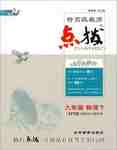题目内容
【题目】You know that you have everything to be thankful for:a loving family,a pretty good job,and a healthy working body.Still,you keep feeling that what you have just isn’t enough.Sure,you can be happier by making some life changes. 【1】 It will make you more likely to start enjoying that sunshine instead of complaining(抱怨)about sunburn.
Live in the present.
The people who are the happiest with their lives are able to enjoy and hug the present moment. 【2】 Focus on what the day will bring you instead of what happened yesterday or what you’ll be able to change about tomorrow. 【3】
Though your life may not be perfect in the moment,there are surely some things that you can be very grateful for,whether it’s your loving family,your amazing friends,your health,your cool new job,or your amazing home.You probably don’t have all of these things but surely there are a few things you can remind yourself to be grateful for every single day.
Stop comparing yourself to others.
Stop thinking about how big your neighbor’s house is,how great your friend Jack’s job is,or how perfect your best friend’s relationship is.You’ll never get anywhere if you compare yourself to others. 【4】
Hang out with people who are satisfied with their lives.
Surround yourself with people who are good influences.They will show you that there are all kinds of ways to be happy,and will maybe even give you some tips for how to walk to difficult situations.【5】 They are more liely to come up with some reasons to be unhappy.
A.Be grateful for what you have.
B.What if there is a major obstacle (障碍)standing in your way?
C.Take some time to enjoy exactly what you’re doing right now.
D.The easiest way to be satisfied with your life is to adjust yourself positively.
E.Avoid people looking for reasons to be upset with their life.
F.But if you drop comparing completely,you’ll only be doing yourself a favor.
G.Get regular exercise with friends every day.
【答案】
【1】D
【2】C
【3】A
【4】F
【5】E
【解析】
试题分析:我们要感恩拥有的一切,快乐健康生活。文章介绍了几点具体做法。
【1】D考查对上下文的理解和推理判断能力。上句讲通过改变自己的生活使自己快乐,D项:对生活满意最简单的方式就是积极地调整自己,是对上句的具体说明,故选D.
【2】C考查对上下文的理解和推理判断能力。本段主要讲要活在当下,珍惜现在。C项:花时间享受现在做的事,符合本段内容,故选C.
【3】A考查对上下文的理解和推理判断能力。本段讲即使你现在的生活并不完美但你也有许多要感谢的,感恩你所拥有的一切。A项:感恩你所拥有的一切概括全段内容,适合做标题,故选A.
【4】F考查对上下文的理解和推理判断能力。本段讲不要和别人攀比,上句讲攀比的具体表现及危害,F项与上句对比讲不攀比的好处,故选F.
【5】E考查对上下文的理解和推理判断能力。本段讲要与对生活满意的人在一起,上句讲这些人对自己的积极影响;下句讲对生活不满意的人的消极影响,E项与上句对比与下句连接,故选E.

 特高级教师点拨系列答案
特高级教师点拨系列答案【题目】任务型阅读,请阅读下面短文,并根据所读内容在文章后表格中的空格里填入一个最恰当的单词。注意:请将答案写在答题卡上相应题号的横线上。 每个空格只填一个单词。
In China, as in many countries, the north-south divide runs deep. People from the north are seen as hale and hearty, while southerners are often portrayed as cunning, cultured traders. Northerners are taller than southerners. The north eats noodles, while the south eats, rice—and according to new research, when it comes to personality, that difference has meant everything.
A study published Friday by a group of psychologists in the journal Science finds that China’s noodle-slurping northerners are more independent, show more “analytic thought” and divorce more frequently. By contrast, the authors write, rice-eating southerners show more qualities traditionally associated with East Asian culture, including more “holistic thought” and lower divorce rates.
The reason? Cultivating rice, the authors say, is a lot harder. Picture a rice paddy, its delicate seedlings tucked in a bed of water. They require careful tending and many hours of labor—by some estimates, twice as much as wheat—as well as reliance on irrigation systems that require neighborly cooperation. As the authors write, for southerners growing rice, “strict self-reliance might have meant starvation.”
Growing wheat, by contrast, the north’s staple grain, is much simpler. One Chinese fanning guide from the 1600s quoted in the study advised aspiring farmers that “if one is short of labor power, it is best to grow wheat.”
To produce their findings, the authors evaluated the attitudes of 1,162 Han Chinese students in Beijing and Liaoning in the north and in Fujian, Guangdong, Yunnan and Sichuan in the south. To control for other factors that distinguish the north and south—such as climate, dialect and contact with herding cultures—the authors also analyzed differences between various neighboring counties in five central provinces along China’s rice-wheat border.
According to the authors, the influence of rice cultivation can help explain East Asia’s “strangely persistent interdependence.” For example, they say South Korea and Japan have remained less individualistic than Western countries, even as they’ve grown wealthier.
The authors aren’t alone in observing the influence various crops have on shaping culture. Malcolm Gladwell in his 2008 book “Outliers” also drew connections between a hard-working ethic (measured by a willingness to fill out long, boring questionnaires) and a historical tradition of rice cultivation in places such as South Korea and Japan, given that the farming of such crops is arguably an equally boring chore.
How China’s North-south Divide Has Influece on 【1】 Personality | |
【2】 in personality | China’s northerners 【3】 on noodles, and they are thought of as hale, hearty and taller with more 【4】 and “analytic thought” as well as higher divorce rates. On the contrary, the southerners prefer eating rice and have more “holistic thought” and lower divorce rates. |
Reasons | Planting rice needs twice more 【5】 than planting wheat. Cultivating rice relies on irrigation system that requires neighbors to 【6】 well. If you are over independent, you might【7】 in the south. If you are 【8】 in labor power, it is best to grow wheat in the north. |
The Research | The attitudes of 1162 Han Chinese students were evaluated. Other unrelated factors like climate, dialect and herding cultures were carefully 【9】 . The result shows the influence of rice cultivation can result in more cooperation and explain East Asia’s “strangely persistent interdependence”. |
Another【10】 observation | Malcolm Gladwell also found the influence crops have on culture in his 2008 book “Outliers”. |